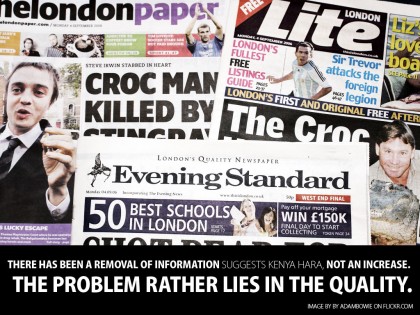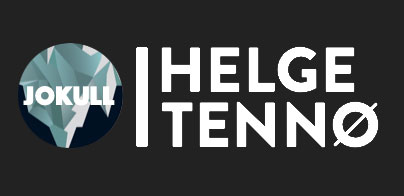In a media world exploding with information, how can we make less noise? Is it reducing the content? Making it more useful and relevant? Or do we need to change our whole perspective on content all together?
I find these perspectives inspiring:
First of it’s this film on Creative Commons (via @jameschutter):
“…you need to move away from thinking about content to thinking about communities
. Communities that develop around content.”Secondly Kevin Slavin of Area/Code states in this interview on Picinic:
“Maybe what augmentation looks like is reducing, knowing a little bit more about a lot less
. And not adding things to the world, but taking things away”
Kevin Slavin of AREA CODE at PICNIC NYC Salon from PICNICCrossmediaweek on Vimeo.
The last perspective is from Kenya Hara, challenging the whole problem with content and information as something “media-ish”
. What is information? Is it the quantity or the quality that is really overwhelming us?
(Thanks to Niko Herzeg for recommending the book Designing Design):
- “Although today’s society is said to be in a state of information overload, in fact it may not be an excess
that are not interested in pharmacological therapy orof agents that directly relax corporal smooth muscle such sildenafil.
. It’s just an overflow of odd and fragmented information in the media
. The amount of information in each fragment is in fact quite small. In this slew of half-baked information, isn’t the brain oppressed? The stress on the brain isn’t because of quantity, but because of limited quality.”
Hara talks about information through sense-driven design. Using the example of walking barefoot, where our soles explode with information sensed from the ground we walk on, as opposed to the numbness we feel today wearing shoes and socks. There has been a removal of information suggests Hara, not an increase. The problem rather lies in the quality.

All three perspectives touch on a subject close to hart:
First that advertising and marketing is to focused on tangible content. And secondly that content needs to be the result of understanding context and value, not a goal in itself.

